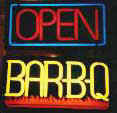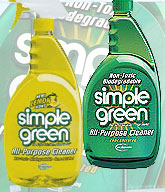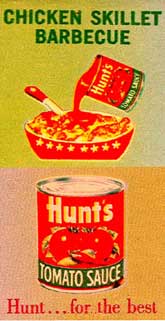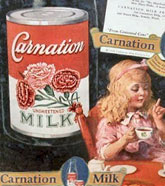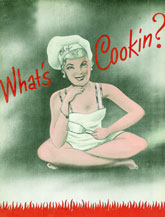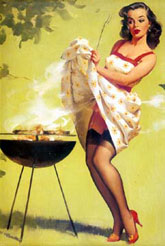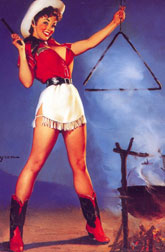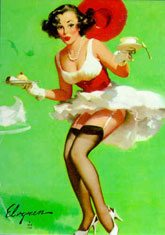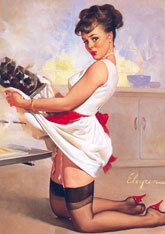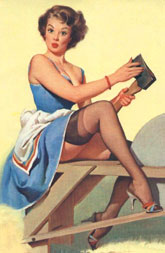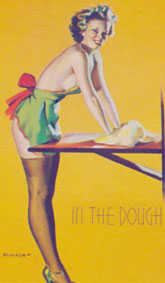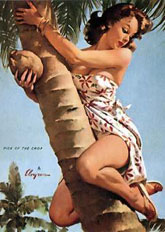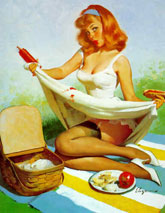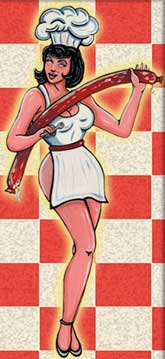Contact BBQbyDan
www.BBQDan.com
Search
KCBS BBQ Cook-Off Info
Recipes,
Smoking Meats
Recipes, Grilling
|
|
|||
|
BBQbyDan
Beef Ribs are a different
animal than Pork Ribs (literally). There’s no selection of backs versus
spares to worry about, just 12-inch lengths with no breastbone attached.
BUT, you can find a "premium" version that has more meat than others
(not trimmed as close to the bone), and of course they will cost more.
BUT, I still like the ones I am about to describe. Which are, typically 3.5 lbs per rack
with 7 bones. I basically cook Beef Ribs exactly like I do Pork Spare
Ribs (almost). They cost between $0.59/lb to $1.49/lb. Typically I buy a
frozen block of 50-55 lbs. and they typically run under $75 per case. That
50-55 lb block is unwrapped, layered slabs, and frozen
solid. But, lightly covered with a plastic sheet top and bottom in the box/case. Let a
case defrost in refrigeration for 4-7 days before processing.
Remove from the package/box and
immediately remove the membrane on the back side of the ribs.
.
Seasoning is a very simple and easy task; just lay the ribs all out, meat side down. Take mustard (just plain mustard) and LIGHTLY coat the rack, or, take a mixture of apple juice (80%) and oil (20%) and spray the slab to hold the seasoning better to the meat. Then take BBQbyDan Rub, or your favorite BBQ rub, and sprinkle all the racks LIGHT to MEDIUM. Turn them over (meat side up) and repeat the process. In the end the ribs are meat side up and seasoned on both sides. They are now ready to put into the Smoker or stack on each other in a bus tub overnight.
If
you have the cooking space just put them in the cooker meat side up. If
there are 20 - 30 racks, then put them in rib racks. Just pick a nice
spot that has even heating (about 250° - 260°F) and go for it.
I actually don't like my beef ribs glazed while cooking (beside for the fact that the sauce will burn). I am very happy with the baste (apple juice and oil in a spray bottle) that I will use a couple of times during the cooking process in a small smoker like a WSM. That will provide a nice, moist and tasty product surface. However, in a rotisserie (like an Ole Hickory) they self baste and spraying is not necessary but will only hinder the cooking process. If you must, you might try a brush-on baste of a bit of oil, apple juice, a tablespoon or so of your favorite rub, and a bit of manteca/lard! That is really going to take it to the next level. They will then truly be the "Bees Knees"!
After 4 hours (+/-) I check to see if the ribs/bones/meat breaks apart by twisting the bones (instead of bending like rubber), then check for a temperature of 199-205 degrees between the bones. If both conditions above are met I pull them out and they’re done. Always do both checks. It ensures a great and completed product, and, gives you experience for subsequent Beef Rib cooking. Let sit in a warmer for a couple of hours or so, then brush on a nice BBQ sauce (like BBQbyDan 4 Star Glaze) and slice the bones for serving.
The final product will be AMAZING
beef ribs. If prepared and cooked correctly, they will be moist. If you
follow the guidelines above, your ribs will come out with a great beef
taste. Beef Ribs done right are simply Prime Rib with a handle! AND, definitely my personal favorite piece of BBQ !!!
Dan Cannon
Dan@BBQbyDan.com-
|
|||
|
|||
|
|

